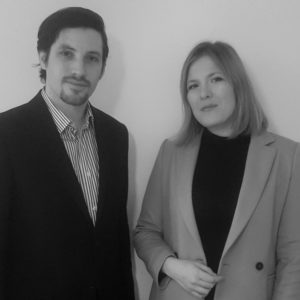

Sébastien Lachaussée & Elisa Martin-Winkel
French financing of TV series
Among French audiovisual production, it is impossible not to notice the rise of series these last pas years: dedicated festivals are flourishing in France, such as Series Series or the future Cannes series festival, and French creations are pretty successful. As a testimony of this boom, CNC study on French audiovisual production in 2015 revealed a drop of the 90 minutes format and an increase of the 52 minutes series. Indeed, in France in 2015, 52 minutes series are the most produced format (36,% of the hours supported by CNC) followed by the 26 minutes series (23,9 %).
While developing and producing series, producers may rely on various sources of funding: French National Center for Cinematography (CNC), public and private TV channels, regional funds …
TV CHANNELS – BROADCASTERS
Regarding audiovisual production broadcasters are the essential source of funding, whether they are public or private channels. Accordingly, in 2015, broadcasters accounted for 72,4% of the televisual fictions financing. Nonetheless a decrease of their investment may be noticed (- 8% in 2015). We can also mention that if TNT channels represent 27,1% of the television audience they are only accountable for 2,1% of the fiction financing.
For 2015, free national TV channels provide 82,3% of the TV channels investments in fiction, up to 380 millions euros, and series are very well represented.
For examples, in 2015, the overall volume of fiction productions ordered by France 2 is made of 79,2% of series and soap operas: Lebowitz contre Lebowitz (8×52’ – Chabraque Productions), Chérif – season 3 (10×52’ – Making Prod). For France 3, its 85,6 % of series and soap operas (versus 79,7 % in 2014). However, it is to be highlighted that Plus belle la vie (260×24’ et 4×52’ – Telfrance Série) constitutes 55,3% of the volume ordered by France 3 in 2015. Finally the volume of fictions ordered by Arte includes 55,9 % of series and soap operas.
Similarly, series are strongly supported by private channels. In 2015, they represent 95,6% of the TV fictions ordered by TF1 and 100% of M6 orders (with 88,8% of short formats). On the other hand, Canal + provides 74,6 millions euros to the production of TV fictions while in hourly volume series represent 96% (Baron noir (8×52’ – Kwaï), Jour polaire (8×52’ – Atlantique Productions).
Finally, it should be noted that producers benefit from the increase in acquisitions of video-on-demand platforms that are more and more interested in the French series. Thus, in 2015, online services contribute to finance 12 hours of fiction (essentially short formats) up to 1,3 M euros. However, their contribution only represents 0,3% of the broadcasters investments in audiovisual fictions (0,2% in 2014).
PUBLIC SUPPORTS
CNC is naturally a strong partner in the financing of audiovisual series. It supports both their development and their production and distribution. However, it should be pointed out that most of these aids are not specifically dedicated to series but to fiction. First, French producers who have an « automatic account » can naturally use such funds to finance the preparation / development of their series (up to 30% of the amounts registered in the automatic account at the beginning of the current year) or for the production.
Producers without an automatic account can obtain selective support, for the preparation or production of their projects. Regarding the preparation support, CNC establishes its amount on the basis of the estimated development cost as mentioned by the producer and regarding the conditions of the contract concluded with an author. In any case, the granted amount may not exceed 40% of the total expenditures. If the project does not enter into production after two years from the allocation of the support, provided that the producer justifies actual and serious expenditure, this support is not refundable.
CNC support for audiovisual production may be requested only for projects with at least a financial participation in the form of pre-sales of the broadcasting rights to one or more French broadcasters and subject to a French financing of 30% minimum. Its amount is limited to 40% of the final cost of the production or of the French share of financing. In any situation, the total amount of state supports (or from state institutions and local authorities) cannot exceed 50% of the final cost of the work or of the French part.
Producers may also, where appropriate, submit applications to the audiovisual innovation fund or to the Fund for diversity, which is available for audiovisual works and notably to series. They can also turn to the Franco-German Fund for the co-development of fiction series, which supports the co-development of bi-national audiovisual series projects, or to the support fund for the development of Franco-Canadian fiction projects in French language.
Finally, CNC offers a selective support for promotion and international sales, which partially finances a producer (or distributor) expenses within the context of the international promotion of the series, in particular: dubbing and subtitling, creation and distribution of promotional supports, costs of advertising space purchase … This aid is allocated by CNC following the advice of a specific committee.
Producers can also resort to regional supports. Indeed, many French regions offer development aids for the producers of audiovisual works. We can notably mention the development fund from Rhônes-Alpes region, which supported series such as « Chérif » or « Accusés ».
Finally, it is important to consider the tax credit. The latter was strengthened in 2016 with an eligible expenditure rate raised to 25%. The CNC noticed that such new rates, for both fictional audiovisual works and co-productions, had an immediate effect and strong impact for the development and relocation of productions.
COPRODUCTIONS
In 2015, 39.1% of the hourly volume of fiction is co-produced by several producers. The series, like other audiovisual productions, are grounds for co-production. Producers may rely on series dedicated festivals to meet and present the projects they are developing. In France, they can notably attend the European coproduction forum of Series Mania Festival or the one during Series Series. The Cannes MIPTV, market for TV and Digital content, remains a key gathering for TV production and the future Cannes Series festival will probably also become an important event.
We can also mention that TV channels may support series as co-producers. Such financing must be clearly distinguished from the TV pre-sales. A coproduction contribution A contribution in co-production confers a right of ownership over the audiovisual work, whereas a pre-sale only relates to the rights of diffusion of the work in a restrictive way. Producers must not neglect the possibilities of international co-productions. Indeed, in 2015, contributions of foreign co-producers amounted to € 8.3 million and they even reached € 13.7 million in 2014. Among the beneficiary projects are « Versailles » or « Jour Polaire ».
In 2015, Fabrice de la Patellière, head of fiction department at Canal +, said in this regard: « It is obvious that in order to develop our international series today we must turn to British, Italian, Spanish or Swedish partners. (…) When one associates, it is possible to gather important means. « .
However, it should be mentioned, that, as far as international co-productions are concerned, they are mainly drawn up to produce very ambitious series, generally in English and with particularly high budgets.
Such a variety of funding requires a high degree of rigor from TV series producers, who must ensure that all commitments made to partners are compatible. It may thus be wise to rely on the know-how of a lawyer specializing in the drawing up of audiovisual contracts with the various parties involved in financing a project.
SHARE THIS ARTICLE
CONTACT
OUR OFFICES
INFORMATION
sl@avocatl.com
PHONE
+33.1.83.92.11.67
Address
121, boulevard de Sebastopol
75002 Paris
5th floor / Staircase A
Follow us :
Newsletter
Please enter your e-mail :
